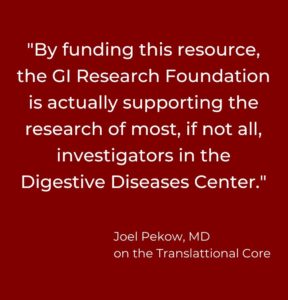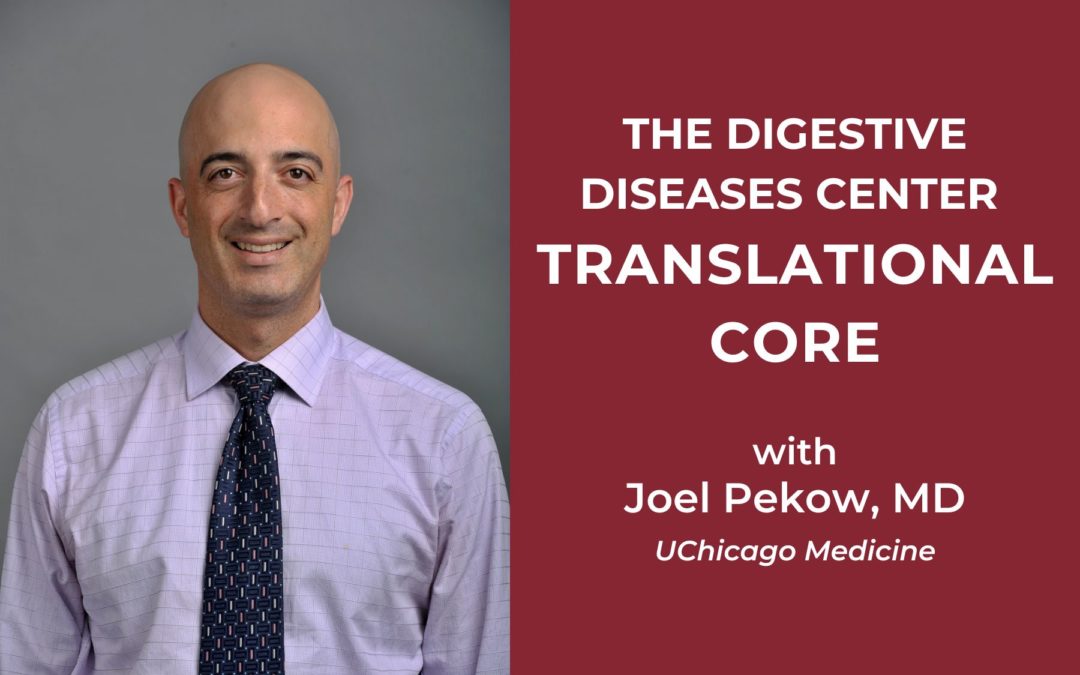One of the most important and enduring contributions of the GI Research Foundation (the Foundation) may also be one of the least well understood. For a decade, the Foundation has supported the Digestive Diseases Center (DDC) Translational Core, an engine that drives transformative research and scientific discovery for all investigators at the University of Chicago.
The DDC Translational Core is a centralized biobank and repository of patient data and biospecimens to facilitate clinical and translational research in digestive diseases. The Translational Core houses data from about 12,000 patients and enables both prospective and retrospective research on patients and disease states.
The Foundation supports the DDC Translational Core with ongoing funding for staff to manage the database and collect samples, equipment to house biospecimens, and other ongoing needs. Unique to the University of Chicago, the Translational Core is a critical sustaining force for research. “One of the key things is that this is a resource that’s used by nearly every faculty member in GI. It’s the infrastructure that supports research from many investigators both at the University and with collaborations outside the institution.” Explains Joel Pekow, MD, Associate Professor of Medicine and Director of the Translational Core at the University of Chicago Medicine.
 “The Translational Core really allows us to follow patients long-term and study the natural history of disease outcomes, to understand medical therapies, and gain mechanistic insights into why people develop digestive diseases. It helps us know why some people respond to therapy, and why some people develop complications with their disease,” explains Dr. Pekow.
“The Translational Core really allows us to follow patients long-term and study the natural history of disease outcomes, to understand medical therapies, and gain mechanistic insights into why people develop digestive diseases. It helps us know why some people respond to therapy, and why some people develop complications with their disease,” explains Dr. Pekow.
Dr. Pekow works with individual investigators to access and use the Translational Core, and to design studies, and analyze data. He also helps manage the Translational Core staff and writes additional grants. And he is grateful for the GI Research Foundation’s support.
“The funding that the Foundation provides is instrumental in this endeavor. We wouldn’t be able to do this without GIRF’s support. It’s key to everybody in the Digestive Diseases Center. By funding this resource, the Foundation is actually supporting the research of most, if not all, investigators in the Center. The money goes a lot further, and it is much more efficiently used,” says Dr. Pekow. “You’re funding the infrastructure that helps support everybody’s research.”

